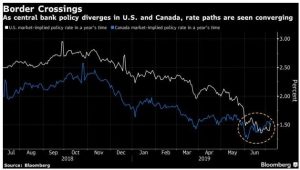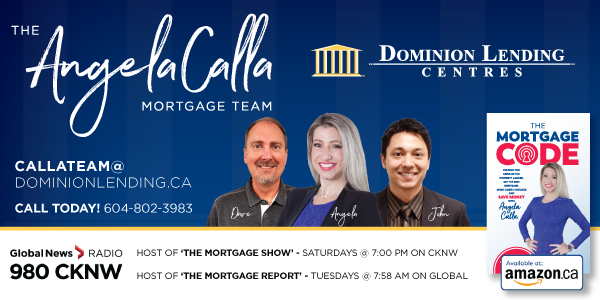Buying a home is one of the most important financial decisions you will make.
It’s common for a first-time homebuyer to be overwhelmed when it comes to real estate industry jargon, so this BLOG is to help make some of the jargon understandable.
To help you understand the process and have confidence in your choices, check out the following common terms you will encounter during the homebuying process.
- Amortization – “Life of the mortgage” The process of paying off a debt by making regular installment payments over a set period of time, at the end of which the loan balance is zero. Typical amortizations are 25 years or if you have over 20% down payment – 30 years.
- Appraisal – An estimate of the current market value of a home. A property is appraised to know the amount of money that a lender is willing to lend for a buyer to buy a particular property. If the appraised amount is less than the asking price for the property, then that piece of real estate might be overpriced. In this case, the lender will refuse to finance the purchase. Appraisals are designed to protect both the lender and buyer. The lender will not get stuck with a property that is less than the money lent, and the buyer will avoid paying too much for the property.
- Closing Costs – Costs you need to have available in addition to the purchase price of your home. Closing costs can include: legal fees, taxes (GST, HST, Property Transfer Tax (PTT) etc.), transfer fees, disbursements and are payable on closing day. They can range from 1.5% to 4% of a home’s selling price.
- Co-Signer – A person that signs a credit application with another person, agreeing to be equally responsible for the repayment of the loan.
- Down Payment – The portion of the home price that is NOT financed by the mortgage loan. The buying typically pays the down payment from their own resources (or other eligible sources) to secure a mortgage.
- Equity – The difference between the price a home could be sold for and the total debts registered against it (i.e. mortgage). Equity usually increases as the mortgage is reduced by regular payments. Rising home prices and home improvements may also increase the equity in the property.
- Fixed Interest Rate – a fixed mortgage interest rate is locked-in and will not increase for the term of the mortgage.
- Gross Debt Service Ratio (GDS) and Total Debt Service Ratio (TDS)
a) GDS – Typically mortgage lenders only want you spending a maximum 35-39% of your gross income on your mortgage (principle & interest), property taxes, heat and 50% of your strata fees.
b) TDS – typically, lenders want you spending a maximum 39-44% of your gross income on your GDS – PLUS any other debt obligations you have (credit card debt, car payments, lines of credit & loans). - High-ratio mortgage / Conventional Mortgage – a high ratio mortgage is a mortgage loan higher than 80% of the lending value of the home. A conventional mortgage is when you have more than 20% down payment. In Canada, if you put less than 20% down payment, you must have Mortgage Default Insurance (see below) and your mortgage affordability (GDS & TDS) is “stress tested” with the Bank of Canada’s qualifying rate (currently 4.64%).
- Interest Rate – This is the monthly principal and interest payment rate.
- Mortgage – A legal document that pledges property to a lender as security for the repayment of the loan. The term is also used to refer to the loan itself.
- Mortgage Broker – A professional who works with many different lenders to find a mortgage that best suits the needs of the borrower.
- Mortgage Default Insurance – Is required for mortgage loans with less than a 20% down payment and is available from Canadian Mortgage & Housing Corp. (CMHC) or 2 other private companies. This insurance protects the lender in case you are unable to fulfill your financial obligations regarding the mortgage.
- Open / Closed Mortgage
a) An open mortgage is a flexible mortgage that allows you to pay off your mortgage in part or in full before the end of its term, because of the flexibility the interest rates are higher.
b) Closed mortgages typically cannot be paid off in whole or in part before the end of its term. Some lenders allow for a partial prepayment of a closed mortgage by increasing the mortgage payment or a lump sum prepayment. If you try and “break your mortgage” or if any prepayments are made above the stipulated allowance the lender allows, a penalty will be charged. - Pre-Approval – A lender commits to lend to a potential borrower a fixed loan amount based on a completed loan application, credit reports, debt, savings and has been reviewed by an underwriter. The commitment remains as long as the borrower still meets the qualification requirements at the time of purchase. This does not guaranty a loan until the property has passed inspections underwriting guidelines.
- Refinance – Refinancing is the process of replacing an existing mortgage with a new one by paying off the existing debt with a new, loan under different terms.
- Term (Mortgage) – Length of time that the contract with your mortgage including interest rate is fixed (typically 5 years).
- Title – The documented evidence that a person or organization has legal ownership of real property.
- Title Insurance – Insurance against losses or damages that could occur because of anything that affects the title to a property. Insurance Title insurance is issued by a Title Company to insure the borrower against errors in the title to your property.
- Variable Rate Mortgage or Adjustable Rate Mortgage (ARM) – A variable mortgage interest rate is based on the Bank of Canada rate and can fluctuate based on market conditions, the Canadian economy. A mortgage loan with an interest rate that is subject to change and is not fixed at the same level for the life of the loan. These types of loans usually start off with a lower interest rate but can subject the borrower to payment uncertainty.
-Kelly Hudson
Angela Calla is a 15 year award-winning woman of influence mortgage expert. Alongside her team, passionately assisting mortgage holders get the best mortgage, and educating them on The Mortgage Show on CKNW for over a decade and through her best-selling book The Mortgage Code available on Amazon. To purchase the book click here: The Mortgage Code. Proceeds from a sales will help build a new emergency room at Eagle Ridge Hospital. Angela can be reached at callateam@dominionlending.ca or 604-802-3983.




